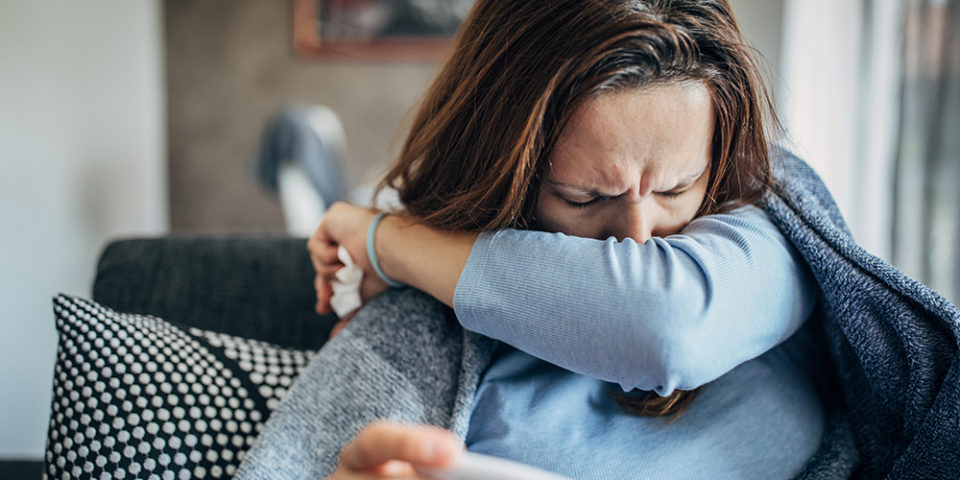Is omicron just a cold?
By now, you probably know someone who’s fallen ill to the COVID-19 variant, omicron. Most people have mild symptoms that clear up in a few days. Does this mean it should be thought of as just another cold? Infectious disease expert Divya Ahuja, MD, said no.
“A lot of the patients are not as sick as they were during the delta surge, but this variant is about two to three times more transmissible than delta. The patients may not be as sick, but the numbers are overwhelming,” he said.
Why is this a problem? Dr. Ahuja offered these reasons:
Limited supply of treatments. We have treatments that are effective against mild or asymptomatic disease and can prevent it from getting worse, but there is not enough supply to meet the demand.
Strain on communities. With omicron, it is likely that a lot of us will get infected. But if all of us get infected at the same time, it puts a strain on businesses, schools, colleges, the healthcare system and the community.
“There is some inevitability that most of us will become infected with this virus, but we shouldn’t throw our hands up,” said Dr. Ahuja. “This is a time to be even more cautious.”
What symptoms are we seeing from omicron?
Dr. Ahuja said omicron’s symptoms are a little bit different than with previous variants. They include:
- Nasal congestion, sneezing
- Headache
- Sore throat
- Cough
- Fever – the primary complaint that prompts people to seek care
“The loss of smell isn’t occurring that much. Some people get a bad cough. Some get short of breath.”
Fortunately, not as many people are experiencing issues with the lungs.
“The virus hangs out in the nose and therefore doesn’t cause as much serious pulmonary disease as the delta variant,” he explained.
Omicron also has a quicker onset of symptoms, taking only two to three days. With delta, it takes four to five days for the symptoms to develop.
“Within a couple of days, the viral load seems to drop quickly, especially in vaccinated individuals. However, the recent CDC guidance for coming out of isolation after five days should not be seen as a free pass. Masking up to 10 days is essential after infection,” Dr. Ahuja said.
Why should I take precautions against omicron if it’s likely I’m going to get it anyway?
Yes, people who are vaccinated and take precautions can still get sick with the virus, but you’re much more likely to need hospitalization if you’re unvaccinated. Vaccination is still very effective against omicron and may have some cross protection against newer variants as they continue to emerge.
Dr. Ahuja said these steps are still important in protecting yourself against omicron:
- Get vaccinated, social distance, wash your hands.
- Follow CDC guidance for isolation and quarantine if you’re infected or exposed. “Are they confusing? Yes. Do they change? Yes. But this is an evolving science, and they are trying to do the best they can with the available information,” Dr. Ahuja said.
- Don’t listen to misinformation from untrustworthy sources. Talk to your doctor.
- Be patient. Everyone is frustrated and tired of having to take precautions, but it’s important to carry on.
Will COVID-19 become more like a common cold?
Dr. Ahuja said the severity of COVID-19 does seem to be going down, so it’s possible it could become endemic, meaning it’s more like common cold and flu viruses.
“There will be a time where 80 or 90% of us in this country are immune to some extent, either through vaccination or infection or a combination of both. And that is when, hopefully, we’ll see the light at the end of the tunnel,” he said.
Have questions about the COVID-19 vaccine?
Find answers to frequently asked questions about the COVID-19 vaccine, including how to get the shot.


